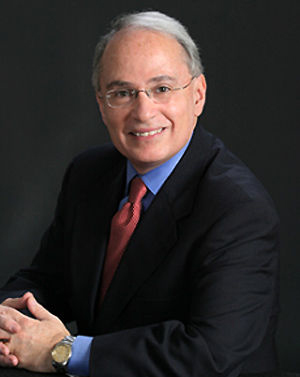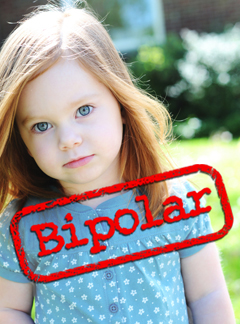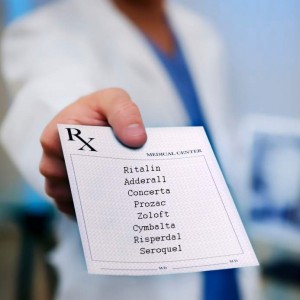By Kelly Patricia O’Meara
March 25, 2013

Psychiatrist Joseph Biederman is credited with the explosion of young children diagnosed with “bipolar” disorder and prescribed powerful antipsychotic drugs. He was paid 1.6 million from the pharmaceutical companies for his “research.”
It is difficult to absorb the recent data released by the Agency for Healthcare Research and Quality, AHRQ, on the skyrocketing numbers of children diagnosed with “bipolar disorder” and not come to the conclusion that this startling information represents the never-ending harm initiated by the idiotic psychiatric theories of Harvard child psychiatrist, Dr. Joseph Biederman.
In order to fully grasp just how outrageous the data are, one first must remember that the now disgraced and marginalized Biederman is credited with being the ring leader for diagnosing the alleged bipolar disorder in very young children.
To add insult to injury, not only was Biederman the chief advocate of the now controversial diagnosis, but he is also credited with prescribing the most powerful antipsychotic drugs as treatment.
It was only due to a Congressional inquiry by Senator Charles E. Grassley that the apparent motive behind Biederman’s childhood bipolar diagnosis was uncovered…money.
$1.6 million dollars was Biederman’s take from the pharmaceutical companies for his “research.” Most revealing, however, were court documents released in March of 2009, which disclose that Biederman reportedly had promised drug maker Johnson & Johnson in advance that his studies on the antipsychotic drug Risperdone (Risperdal) would prove the drug to be effective when used on preschool age children.
Biederman could never be accused of discrimination. The Harvard psychiatrist, who literally placed himself just one rung below God, was so drug money-friendly that his list of paymasters reads like a who’s who of pharmaceutical giants, including Abbott Laboratories, Bristol-Myers Squibb, Eli Lilly, Janssen, Novartis, Pfizer and Shire to name a few.
Remarkably, Biederman was not held responsible for the epidemic of preschool children being diagnosed with the alleged bipolar disorder. Rather, the psychiatrist received a slap on the wrist for failing to report all but $200,000 of his pharmaceutical booty to University officials.
And while Biederman remains at his Harvard ivy tower, the devastating scope of his pharmaceutical-bought psychiatric theories on childhood bipolar disorder finally are coming to light.
 The AHRQ data reveal the breakdown of the number of children diagnosed as bipolar has skyrocketed. The data below represents hospitalization rates for children diagnosed as bipolar between 1997-2010.
The AHRQ data reveal the breakdown of the number of children diagnosed as bipolar has skyrocketed. The data below represents hospitalization rates for children diagnosed as bipolar between 1997-2010.
* 5-9 year olds increased 696%.
* 10-14 year olds increased 475%.
* 15-17 year olds increased 345%.
* Hospital stays for bipolar disorder for all children
aged 1-17 increased 434%.
While the increased numbers alone are mind-boggling, there are several issues to look at when considering this information. The least of which is that there is no discussion about what psychiatric drugs had been prescribed to these children as “treatment” prior to the hospitalization.
Given Biederman’s pharmaceutical-driven influence on the diagnosing of the alleged bipolar disorder in children, and his recommended treatment, one can assume that antipsychotic drugs were involved in many, if not most, of the hospitalizations.
That antipsychotic drugs may adversely affect children isn’t in question. The reported adverse side effects include excessive weight gain, head pain, dizziness, drowsiness, abnormally low blood pressure, trouble breathing, suicidal ideation, depression, disease of the muscle of the heart with enlargement, kidney failure and diabetes, to name a few of the three pages listed.
Perhaps it is because of psychiatrists, like Biederman, who literally get away with pharmaceutical bought-and-paid-for psychiatric diagnosing, that others in the profession are embolden to join the Biederman million-dollar push-a-drug club.
For example, last week a study by Lisa Cosgrove, a University of Massachusetts researcher, reported that “All of the panel members that produced the American Psychiatric Association (APA)’s Practice Guideline for the Treatment of Patients with Major Depressive Disorder [a precursor to bipolar] had numerous financial ties to drug companies that manufacture antidepressants.”

Biederman is the poster boy for no personal accountability. Despite his obvious lapse in ethical behavior, not only was he not run out of the profession but he got to keep every penny of his $1.6 million in pharmaceutical largesse.
So it continues. One can only guess what the hospitalization data will reveal ten years from now for the astronomical increases in the diagnosis of Major Depressive Disorder. If Biederman’s “research” and pharmaceutical pay-off is any indication of what’s to come, it doesn’t take much imagination.
Biederman is the poster boy for no personal accountability. Despite his obvious lapse in ethical behavior, not only was he not run out of the profession but he got to keep every penny of his $1.6 million in pharmaceutical largesse.
Unfortunately, based on the data, it seems the recipients of Biederman’s pharmaceutical-bought psychiatric theories—the children—didn’t make out so well.
And despite the harm caused by such a flagrant abuse of position, Cosgrove’s research reveals that nothing has changed… it’s psychiatric diagnosing as usual. For the right price, there appears to be no shortage of psychiatric diagnosis wannabes eager to pick up where Biederman left off.
—
Kelly Patricia O’Meara is an award winning investigative reporter for the Washington Times, Insight Magazine, penning dozens of articles exposing the fraud of psychiatric diagnosis and the dangers of the psychiatric drugs – including her ground-breaking 1999 cover story, Guns & Doses, exposing the link between psychiatric drugs and acts of senseless violence. She is also the author of the highly acclaimed book, Psyched Out: How Psychiatry Sells Mental Illness and Pushes Pills that Kill. Prior to working as an investigative journalist, O’Meara spent sixteen years on Capitol Hill as a congressional staffer to four Members of Congress. She holds a B.S. in Political Science from the University of Maryland.


SHARE YOUR STORY/COMMENT